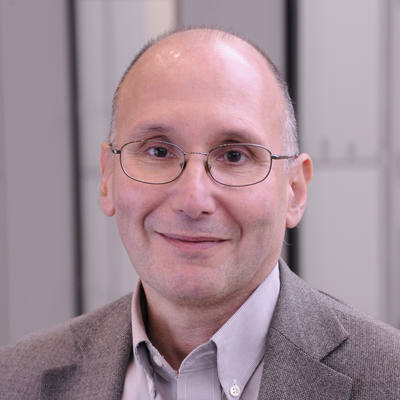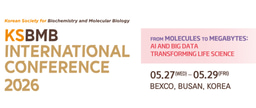Visions: Mike Stratton and the Wellcome Sanger Institute


Professor Sir Mike Stratton, FMedSci FRS, Director of the Wellcome Sanger Institute and Chief Executive Officer of the Wellcome Genome Campus. His primary research interests have been in the genetics of cancer. His early research focused on inherited susceptibility. Mike mapped and identified the major high-risk breast cancer susceptibility gene BRCA2 and subsequently a series of moderate-risk breast cancer and other cancer susceptibility genes.
In 2000 Mike initiated the Cancer Genome Project at the Wellcome Sanger Institute which conducts systematic genome-wide searches for somatic mutations in human cancer. Through these studies he discovered somatic mutations of the BRAF gene in malignant melanoma and several other mutated cancer genes in lung, renal, breast and other cancers. He has described the basic patterns of somatic mutation in cancer genomes revealing underlying DNA mutational and repair processes.
Mike is a Fellow of the Royal Society (FRS) and was knighted by the Queen in 2013 (for our international audiences, to be knighted by the Queen is to receive a UK honour of a knighthood for services rendered to the country).
An institute with an ambitious aim
The Wellcome Trust established the Sanger Centre in 1992 to undertake the most ambitious project ever attempted in biology – sequencing the human genome. The new facility developed laboratory infrastructure, robotics, team working and computational approaches on a scale unprecedented in life sciences. In 2000, the first draft of the human genome was announced with the Sanger Centre championing open access to the data and making the largest contribution to the global collaborative endeavour. Genomes began to convert biology into big data science. The subsequently renamed Wellcome Trust Sanger Institute established long term research programmes to explore and apply genome sequences.
The last three decades have witnessed an extraordinary increase in the amount of data generated from biology. This has primarily been initiated by systematic genome sequencing, but other sources, including biological images, are increasingly contributing. Iterative reductions in cost have fuelled this expansion, with the cost of generating nucleic acid sequences falling approximately one million-fold over this period.
In consequence, there has been a transformation in the influence of computational approaches in biology to store, organise, analyse, share and present these data. Together, these changes are having a substantial and pervasive impact on biological science and its applications in medicine, agriculture, management of the environment, and in other contexts. These changes are also engendering wider social effects with the adoption of genomics at scale by governments, health services and the pharmaceutical industry, and the creation of a biotechnology sector dedicated to generating and handling large amounts of biological data. Genomes are entering the lives of people, healthy and with disease, bringing questions and challenges pertaining to personal perspectives and public understanding.
We are still in the foothills of extracting and using the knowledge buried in the 3,000,000,000 letters of code in the human genome and have scarcely begun to consider the rest of the genomes on Earth. Further transformative advances in our understanding and management of the living world will spring from the ever-increasing accrual of human and other genomes, and from the myriad analytic perspectives taken. The role of the Sanger Institute is to provide intellectual, technological and operational leadership throughout this journey.
Planning to benefit from opportunities
The science of the Sanger Institute is strategically planned around scientific themes with top-down decision making. It involves a limited number of large-scale projects that generate reference datasets, many lasting 10-20 years. Sanger science is typified by changes in direction when new opportunities arise from our scientific programmes, data production platforms, and people. Opportunities also arise through advances in technology, which Sanger elaborates to high-throughput and large-scale. New directions require old directions to stop in order that we continue to deliver science that others cannot do. Recent changes include a deliberate expansion in our mission to include understanding all of life, which resulted in the creation of the Tree of Life Programme. Advances in cell and organoid technology have resulted in an expansion of cellular operations and a reduction in the use of mice.
To deliver its mission Sanger will operate as an 'ideas factory', identifying new frontiers of biology and application to be explored through genome sequence. It will continue to be at the leading edge of the development, application and implementation of genomics technologies, conduct research characterised by large-scale data production that cannot easily be conducted elsewhere, and be an expert in aggregation, analysis and interpretation of large quantities of genomic data. We will also initiate and participate in major national and international collaborative research initiatives, incubate the next generation of scientists and clinicians in genome research and, through open engagement and collaboration with the world-wide scientific community, empower genome research across the globe.
Three aims and three approaches
Our science has three main goals, which are i) to provide new insights into the biology of humans and other organisms, ii) to better understand the causes and progression of human disease, and to provide the scientific basis for improving disease prevention and management, and iii) to elucidate the evolutionary tree of life and to advance the scientific knowledge base used to manage the living environment, and to further the knowledge base for synthetic genomics.
To achieve these goals, we have three major experimental approaches. Under the first approach we analyse DNA sequence differences between individual genomes of the same species. The sequence variation studied will be naturally occurring and engineered, inherited and somatically acquired, and include differences between the genomes of individual humans, of individual isolates of disease-causing microbes or their vectors, and of individual cells. These studies will provide insights into the causal roles of genes in healthy and disease traits, into the histories of humans, microbes and cells, and into the causes of sequence variation. Under the second approach we analyse gene expression and epigenomic features of the genome at the single cell level to discover and classify cell types in health and disease and to understand their developmental and functional relationships. Our third approach sees the analysis of reference genomes across the Tree of Life to understand evolution, provide insights into gene function and to generate informational resources for monitoring of the living environment and synthetic biology.
Sanger's large-scale data production and data handling platforms provide the foundations of our scientific strategy and delivery. These scientific approaches depend on a limited set of core technologies into which we invest substantially, proactively conducting research and development to be at the leading edge of implementation, and which we optimize for delivery at large-scale. These technologies include nucleic acid sequencing, mutagenesis, cell culture, microscopic and spatial imaging of nucleic acid profiles of cells in tissues, and computational analysis of the data volumes generated.
An open research culture
Life at the Sanger Institute is unique. We are tackling some of the most difficult challenges in genomic research. This demands science at scale; a visionary and creative approach to research that pushes the boundaries of our understanding in new and exciting ways. We know that the success of our institute depends on our people, and we embrace everything that is unique about individuals by drawing on their different skills and perspectives. There are people at the Sanger Institute from 70+ nationalities yet working here is more than just salary – it is a unique experience where collaboration, innovation and support for people as individuals in the Sanger community are demonstrated in everything we do.
Our science is founded on the talents, imagination and curiosity of our people. Our wet-lab scientists, bioinformaticians, developers, engineers and skilled administrators work together to deliver the Sanger Institute's cutting-edge research. This academic atmosphere, coupled with our exceptional facilities and resources, provides a unique training environment. At any time there are more than 100 postdoctoral scientists and around 80 PhD students at the Institute, including clinician scientists. There is no limitation on country of origin and, as it can be challenging for talented individuals from low- and middle-income countries (LMIC) to be accepted onto competitive graduate programmes in high income countries, we have an MPhil programme for three students each year from LMIC, which provides the experience and credibility for successful application to such programmes. We also enable aspiring scientists and medical students to experience the Institute’s world-leading research through undergraduate and school-age work placements. In addition, we support all staff to learn and develop so that the whole Institute operates at the leading edge of best practice. We also strongly champion the open release of data, including all the resources, protocols, tools, standards, materials and publications we produce.
The Sanger Institute is supported by a recurrent quinquennial core grant from Wellcome and a number of external grants from funders including UK Research Councils, charities, the European Union and the National Institutes of Health (NIH).
Mike Stratton





Join the FEBS Network today
Joining the FEBS Network’s molecular life sciences community enables you to access special content on the site, present your profile, 'follow' contributors, 'comment' on and 'like' content, post your own content, and set up a tailored email digest for updates.
If you are a student or early career researcher interested in the Wellcome Sanger Institute, listen to the online talk that Dr Roser Vento-Tormo, Group Leader on Cellular Genetics at the Sanger, will give to the FEBS Junior Sections on 19 October 2021, 18:00 (CEST). For more information and to register for the talk, visit:
https://network.febs.org/posts/room-for-junior-sections-of-febs-societies